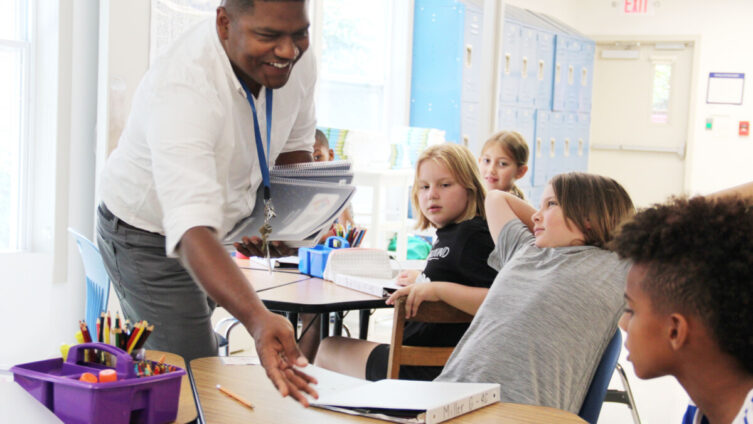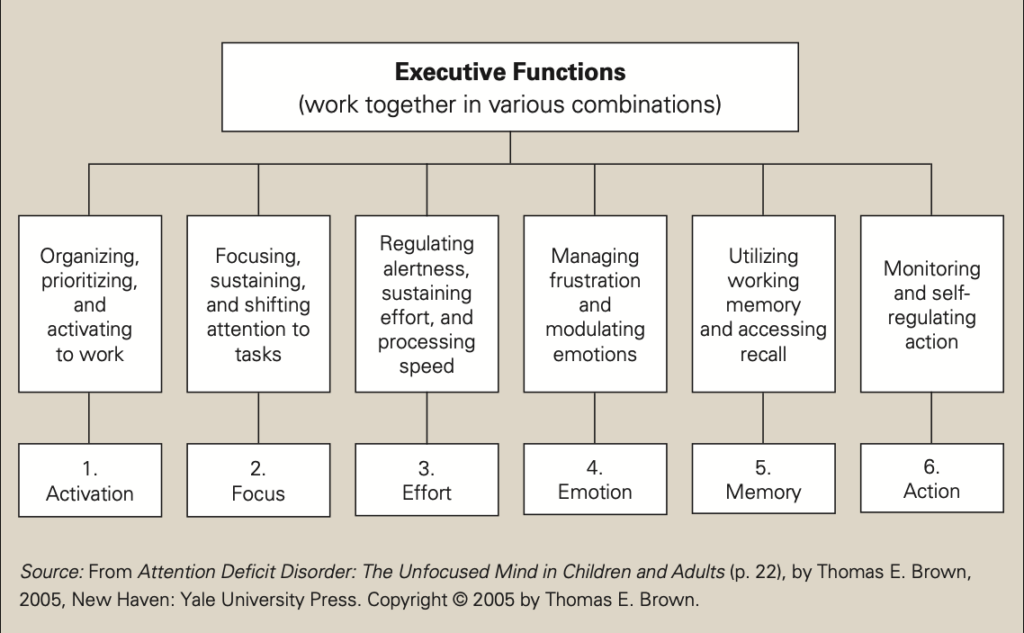
By Cristian Eden
TCS Executive Functioning Coach
A few years ago, I shared with my fourth-grade students that I would not continue as a fourth-grade teacher at The Children’s School but instead work in another capacity.
Their responses varied from shock to wonder and natural curiosity. “What exactly does an Executive Functioning Coach do?” a bright-eyed student raised her hand and asked. A rare silence filled the room as the students collectively waited for a response. Luckily, I was prepared to answer this question.
“An Executive Functioning Coach works with students to develop students’ executive functioning skills.”
The teacher that I am set them up perfectly for the follow-up question that I anticipated: “What is Executive Functioning?”
What is Executive Functioning?
In my training to become an executive functioning coach, I worked tirelessly to develop an elevator pitch to answer this question.
Executive functioning is a set of skills the brain manages that allows individuals to regulate tasks and emotions to reach their goals. Students who require support in executive functioning may need help developing skills in organization, planning, maintaining focus, working memory, and regulating emotions.
I’ve heard numerous analogies experts use to provide more clarity; some range from a conductor leading a symphony to an air traffic controller center. My initial introduction to executive functioning references a child with the task of cleaning and organizing a room. What’s the goal? Where do you start? What’s the plan? These are all questions I ask students when working with them to develop their skills. Executive functioning involves identifying a goal and creating a plan to reach the specific objective.
While there is no operational definition for executive functioning, there are critical characterizations for the term:
- Executive functions are a set of skills
- We are not born with these skills; instead, we develop them
- The brain manages executive functions
- They are essential for learning, working, and living daily life!
Without a doubt, these skills are essential for learning and academic growth. Students rely on these skills to complete assignments and projects, manage their time, focus on learning, engage in activities, and plan for school activities.
Skills that fall into executive functioning are often shown in clusters, yet they work jointly toward reaching a goal. Perhaps the most recognized model of executive function skills is Dr. Thomas Brown’s.
It’s important to note that executive functioning skills and levels of development vary from person to person. Additionally, students with formal ADD/ADHD diagnoses may regularly face more challenges as they work to develop and use these skills.
What Does an Executive Functioning Coach Do?
To answer the original question, what exactly does an executive functioning coach do?
An executive functioning coach, or EF coach, works with individuals to develop skills to complete tasks that require organization, focus, time management, and many skills that fall under the executive functions umbrella. Working with teachers on implementing best practices and directly with students to consistently apply these strategies, strengthens these skills and students’ continued progress.
At The Children’s School, my work as an EF coach entails promoting explicit instruction for students as they develop these skills and assisting students who require direct instruction and support in these targeted areas. The strategies and initiatives we promote are designed to benefit all students, though the focus is primarily on students with executive functioning challenges.
Strategy and support can include placing visible schedules in classrooms, setting timers to manage time, and creating checklists to improve organization, just to list a few examples.
To foster the development of executive functioning skills for all students, we provided all Upper School (grades 4-8) students with a paper planner and classroom-based instruction on effective habits for time management. Modeling the use of these custom planners and giving clear examples of how one skill works with another became clear in our lessons.
I am grateful to serve the TCS community as the executive function coach, and my approach centers around the term coach, specifically helping individuals reach their goals by providing strategies and training to strengthen their skills.
This summer, we held our first EF Camp, P.O.P. (Plan, Organize, Prioritize!), where students had an opportunity to develop their executive functioning skills by applying them to practical daily activities, including going on a shopping trip, planning a garden, and planning a celebration. Students also learned an unexpected lesson about developing these essential skills: It can be fun!
If you have questions about executive functioning coaching at TCS, feel free to email me at cristiane@tcsatl.org. I look forward to more opportunities to share more about executive functioning with The Children’s School community.










